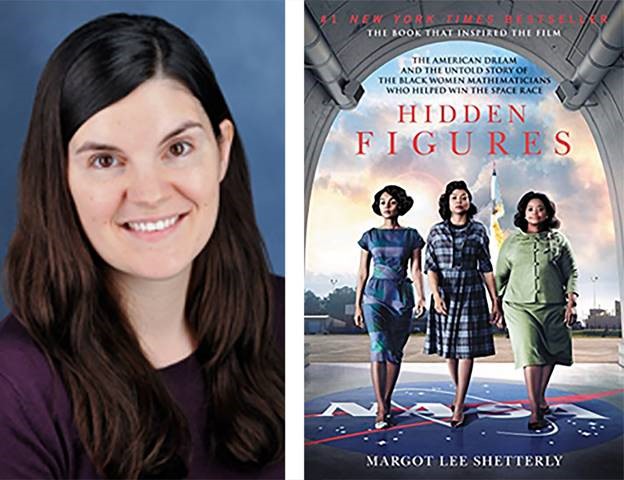DC3 Library Celebrates Women’s History Month
Published February 28, 2023

The DC3 Library Women’s History Month events include a Zoom presentation by Dr. Nicole Perry (left) titled “Women’s Work for Women: The Kansas State Industrial Farm for Women” and movie and book discussion nights about “Hidden Figures.” [Courtesy Photos]
| The Dodge City Community College (DC3) Library is celebrating Women’s History Month with events scheduled throughout the month of March. Up first, at 6 p.m., on March 9, is a Zoom presentation with Dr. Nicole Perry titled “Women’s Work for Women: The Kansas State Industrial Farm for Women.” Perry, who has a doctorate in sociology, works at the University of Kansas. Her presentation will cover the period of time between the world wars, when more than 5,000 women were detained at the Kansas State Industrial Farm for Women, in Lansing, Kan., for having venereal diseases. In her talk, she will explore all of the women involved—from the activists who lobbied to create the farm, to the professionals who worked there, to the inmates whose freedoms were compromised. “Women’s Work for Women” is part of the Humanities Kansas Speakers Bureau, which features humanities-based presentations designed to share stories that inspire, inform, and strengthen civic engagement. Up next at 6 p.m., on March 23, is the March Science Café. This event, which will be a Women in STEM panel, is a cooperative effort between the Science Café and Read and CONQuer committees. This panel discussion will feature women who work in the Science, Technology, Engineering, and Math (STEM) fields. At 6:30 p.m., on March 24, the Library will then show the movie “Hidden Figures,” which coincides with the March Read and CONQuer program. And five days later, at 6:30 p.m., on March 29, the Library will host a discussion on the book “Hidden Figures: The American Dream and the Untold Story of the Black Women Mathematicians Who Helped Win the Space Race” by Margot Lee Shetterly. “There are still very many fields in STEM that are dominated by men,” Dr. Lana McDonnell, DC3 Professor of Speech/Communications, said. “Our book choice made this a great match with the Science Café and offers an opportunity for our students to get some real-life perspectives and advice as they go through their own journeys.” McDonnell, along with Dr. Geneva Diamond, DC3 Associate Professor of English—who are both members of the Read and CONQuer committee—spent months looking though material related to women’s history, before choosing “Hidden Figures” for the March book and movie. “We found a number of books that were excellent,” McDonnell said. “As we went through our libraries and purchased a few more books, we kept coming back to a couple of questions: What would resonate with students, and what would be accessible?” As McDonnell and Diamond began to search for a March book selection, they decided to try and find a story about female mathematicians who had made big impacts in their respective disciplines but had remained uncredited for their work. And after considering several texts, they eventually settled on “Hidden Figures.” “It makes a similar point and is definitely motivational,” she said. “We also thought our students would strongly identify with the characters.” McDonnell said the book does an extraordinary job of highlighting an untold story about some unsung American heroes. “The obstacles based on race, gender, and class are very clear in the narrative,” she said. “The intersectionality of experience is also very important. In the time period, things were not very good for women in general, but at times were absolutely inhumane for women of color. The spirit, drive, and passion to overcome what seemed insurmountable odds is an inspirational story for all.” For McDonnell, what is most impactful about the book is that it destroys stereotypes about what women—and specifically, women of color—can do. “It challenges stereotypes based on gender and race,” she said. “It is also inspirational for all in seeing what the human mind can do. The stereotype that girls are bad at math or science is definitely destroyed with this well-told story based on actual events.” By Lance Ziesch |